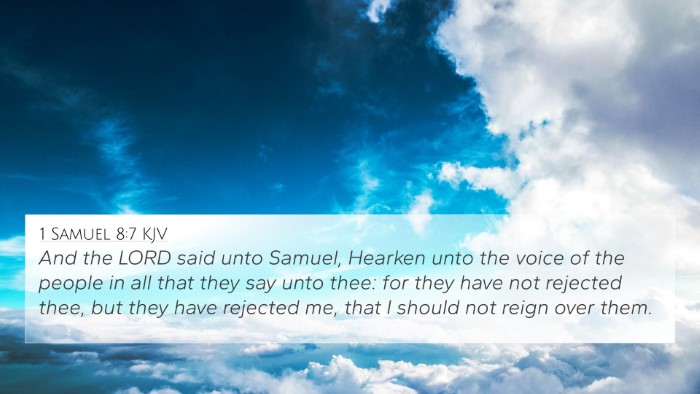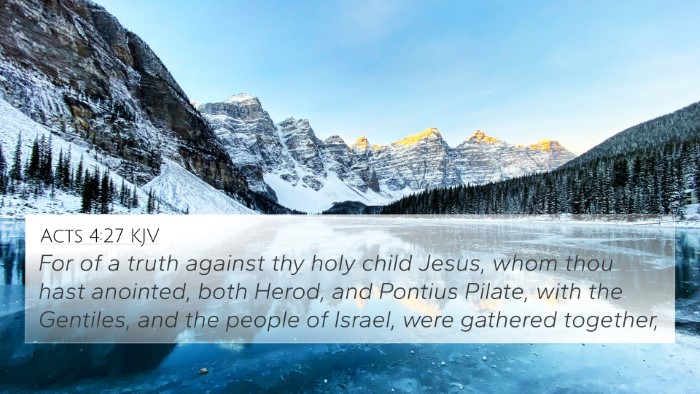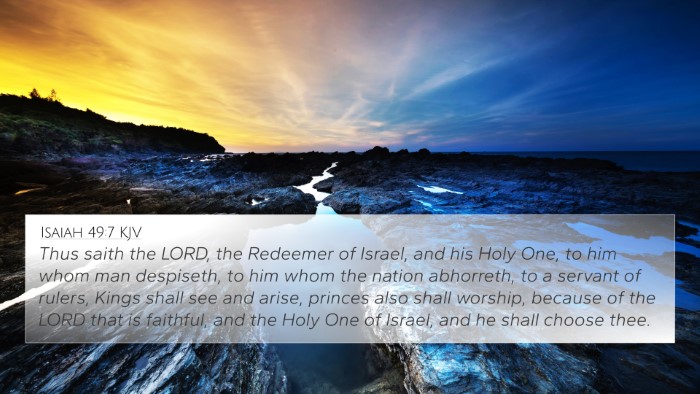Meaning and Interpretation of Luke 19:14
Luke 19:14 reads: “But his citizens hated him and sent a delegation after him, saying, ‘We do not want this man to reign over us.’” This verse carries significant meaning within the context of Jesus' parable of the nobleman, illustrating themes of rejection and authority.
Exegesis of Luke 19:14
This verse describes the reaction of the citizens toward the nobleman who represents Jesus Christ. This response indicates a refusal to accept his authority and reign, foreshadowing the larger rejection of Christ by the Jewish people.
Insights from Commentaries
-
Matthew Henry: highlights the disdain and rebellion evident in the citizens' request. They symbolize those who resist the rightful authority of God, emphasizing that many will reject the Gospel and His Kingdom during Christ's ministry.
-
Albert Barnes: notes the political undertones of the verse. This narrative reflects the hostility towards Christ and foreshadows His crucifixion, fulfilling the prophetic elements of the Old Testament where leaders often rejected God’s chosen ones.
-
Adam Clarke: elaborates on the implications of the citizens' statement. He views their request as symbolic of humanity's widespread rejection of divine governance, which has consequences highlighting the importance of accepting Christ’s sovereignty.
Biblical Cross-References
Understanding Luke 19:14 is enriched through cross-referencing with the following verses:
- John 1:11: “He came to His own, and His own did not receive Him.” This verse similarly illustrates the rejection of Christ by His own people.
- Matthew 21:33-46: The parable of the wicked tenants reflects the same theme of rejection of God’s messengers.
- Luke 13:34: “O Jerusalem, Jerusalem, the city that kills the prophets...” indicating the historical pattern of rejecting God's authority.
- Acts 7:51: “You stiff-necked people, uncircumcised in heart and ears...” highlighting the continuation of this rejection post-resurrection.
- Revelation 19:16: “On His robe and on His thigh He has a name written, King of Kings and Lord of Lords.” Establishing Christ’s ultimate authority despite rejection.
- Mark 12:10-12: Another parable illustrating the severe consequences of rejecting God’s chosen ones.
- Hebrews 10:29: “Of how much worse punishment, do you suppose, will he be thought worthy who has trampled the Son of God underfoot?” pointing to consequences of rejecting Christ.
Thematic Connections
This verse explores several key themes:
- Rejection of Authority: The citizens' plea illustrates a broader human tendency to resist God’s rule.
- The Importance of Acceptance: Emphasizes the necessity of acknowledging Christ’s lordship in believers' lives.
- Prophetic Fulfillment: Connects with Old Testament prophecies regarding the Messiah’s rejection.
Application for Modern Believers
As modern readers of Scripture, Luke 19:14 invites reflection on our own acceptance of Christ’s authority. The rejection experienced by Jesus serves as a warning against hard-heartedness and a call to embrace His reign genuinely.
This verse, therefore, is not only a historical narrative but a timeless reflection on the relationship between authority, acceptance, and our response to God's lordship over our lives.
Conclusion
In sum, Luke 19:14 is pivotal in illustrating the rejection of God’s appointed authority, reinforced by cross-references throughout Scripture that echo this theme of defiance against divine governance. Believers today are encouraged to seek a deeper understanding of Christ’s authority through the lens of these inter-Biblical dialogues, reflecting on how such rejections can present in our own lives and how we can respond positively to God’s call.
Tools for Further Study
For those interested in exploring the connections between Bible verses, various tools and methodologies exist:
- Bible Concordance: Use a concordance to find related scriptures.
- Bible Cross-Reference Guide: Reference guides provide thematic links between verses.
- Cross-Reference Bible Study: This method aids in a comprehensive study of interconnected verses for deeper understanding.
- Bible Reference Resources: Utilize scholarly materials for expanded insights on scriptural themes.













